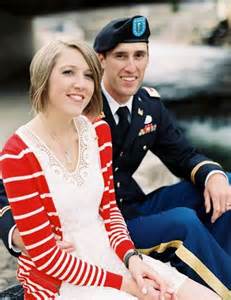How to Make Life After Deployment Easier

For many vets, returning home after living in a drastically different society is a welcome experience. Although they may be looking forward to being reunited with their families, some military vets may have a hard time readjusting to home life, especially if there are children involved.
Responsibility
As the spouse of a military vet who has finally returned home from being deployed, it is your responsibility to ensure that your vet has a safe and stress-free home environment. Even though you may be excited to know about their life and experiences while they were away, you should never try and force them to talk of war or any other experiences that they may have had. You want to keep your spouse from becoming upset about conversing with you because it may force them to relive things that they don’t feel comfortable talking about. Instead, wait for your spouse to open up and approach you to talk about any experiences they had overseas.
It is not uncommon for vets to have physical reactions to flashbacks and memories of their experiences abroad. These reactions may include fear, irritability, fatigue, insomnia, an inability to focus, and nervousness. If you happen to notice that your spouse has any of these reactions while readjusting to life at home, you should encourage them to talk to other vets and crisis counselors who have experience in dealing with vets and stress.
Household Budget
Maintain your budget. You may be tempted to spend money on items to compensate for your inability to communicate with your spouse or to make it easier for them to focus and enjoy life at home. But instead of spending your money frivolously, save it. You may need to use that money for unexpected household expenses later on, and if you spend it now you may not have it. Anything that you purchase will only provide temporary relief and may actually mask the signs and symptoms of a more serious problem such as PTSD (Post Traumatic Stress Disorder).
Households With Children
If there are children in your home, they may also be struggling to adjust to having their other parent around. Although children are very resilient, they are not impervious to any emotional undercurrents that are in the home.
Be considerate of your children’s feelings. Your children are probably feeling some of the same things that you and your spouse feel, such as fear, stress, uncertainty, elation and worry. In fact, when a previously deployed spouse returns home, it is not uncommon for children to experience many of the same feelings they had when your spouse was sent off for deployment.
Some children depending on their feelings and age will react in a negative manner that results in them pushing the returning parent away. Instead of chastising your children if they react this way, talk to them so you can understand why they are acting out. You should also consider taking your children to a therapist to help them to understand their feelings so they can adjust accordingly.
Don’t stop your children from seeking attention from their other parent. Even if you want to spend some time alone with your spouse, you have to remember that your children’s attention can also help your spouse to readjust to life at home. Make your military spouse’s transition home easier by providing them with an open, loving and nurturing environment.
Related products you may like:
Testimonials:
-
I received my United States MA-1 Bravo Jacket yesterday and I am very pleased with it. Thanks
Charles W
-
Thank you very much for the two beautiful garments! Both the MA1-Bravo Jacket and the Concealed Carry Soft Shell Vest fit perfectly and are tailored to perfection. They are rugged and warm, exactly what I was looking for.
Ed J.
-
I received the jacket this past Wednesday. I just love it. Good quality, feels great, and looks sharp. I have been looking for such a jacket the past few years and have finally found it.
Edward A.
-
Dear Vetcom, Received the MA-1 Bravo Jacket yesterday. Thank you so very much, made a Veteran very happy. Was so hoping to have it on time for him to wear on Veterans Day and you made sure it was here in time. The jacket is beautiful and my husband just loves it. Again, thank you so very much and God bless.
Jessie H.







